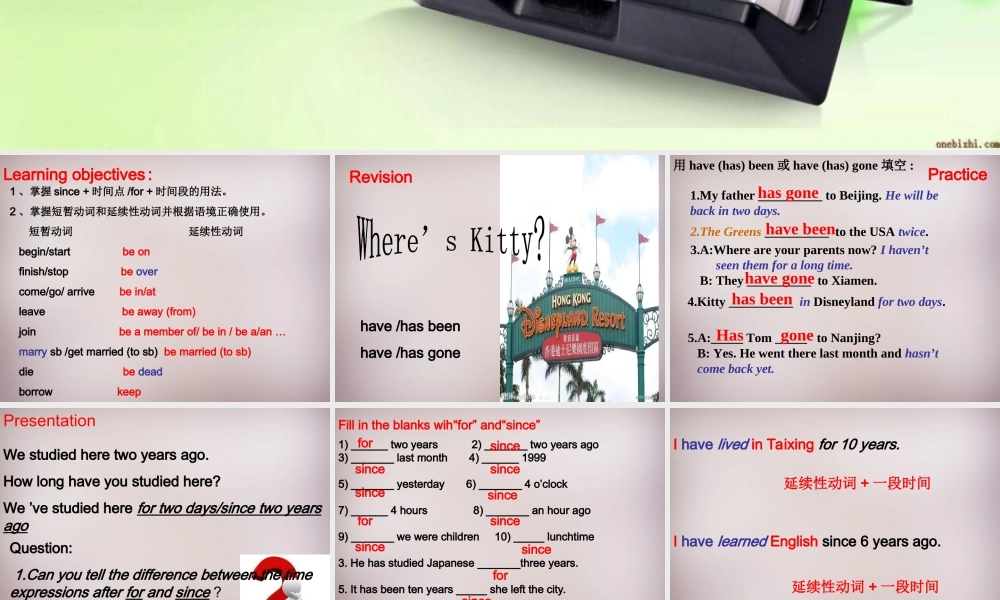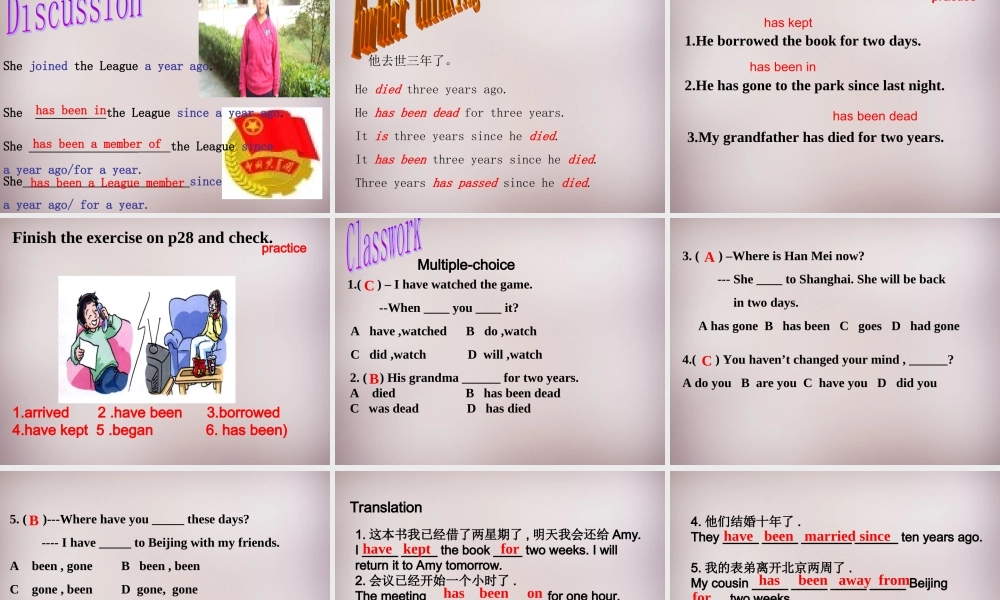Learning objectives :1 、掌握 since + 时间点 /for + 时间段的用法。2 、掌握短暂动词和延续性动词并根据语境正确使用。 短暂动词 延续性动词 begin/start be on finish/stop be over come/go/ arrive be in/at leave be away (from) join be a member of/ be in / be a/an … marry sb /get married (to sb) be married (to sb) die be dead borrow keep Revisionhave /has beenhave /has gone用 have (has) been 或 have (has) gone 填空 :1.My father __________ to Beijing. He will be back in two days.2.The Greens __________ to the USA twice. 3.A:Where are your parents now? I haven’t seen them for a long time. B: They __________ to Xiamen.4.Kitty __________ in Disneyland for two days.5.A:_____ Tom _____ to Nanjing? B: Yes. He went there last month and hasn’t come back yet.has gonehave beenhave gonehas beenHas gonePracticePresentationWe studied here two years ago.How long have you studied here?We ’ve studied here for two days/since two years agoQuestion: 1.Can you tell the difference between the time expressions after for and since ?since + 时间点for+ 时间段Fill in the blanks wih“for” and“since”1) ______ two years 2) _______ two years ago3) _______ last month 4) ______ 19995) _______ yesterday 6) _______ 4 o’clock7) ______ 4 hours 8) _______ an hour ago9) _______ we were children 10) _____ lunchtime3. He has studied Japanese _______three years.5. It has been ten years _____ she left the city.sinceforforsincesincesincesinceforsincesincesincesinceI have lived in Taixing for 10 years.I have learned English since 6 years ago.延续性动词 + 一段时间延续性动词 + 一段时间短暂动词 延续性动词begin/start be onfinish/stop be overcome/go/ arrive be in/atleave (a place) be away (from)join the League be a member of the League (共青团) be in th...




